News
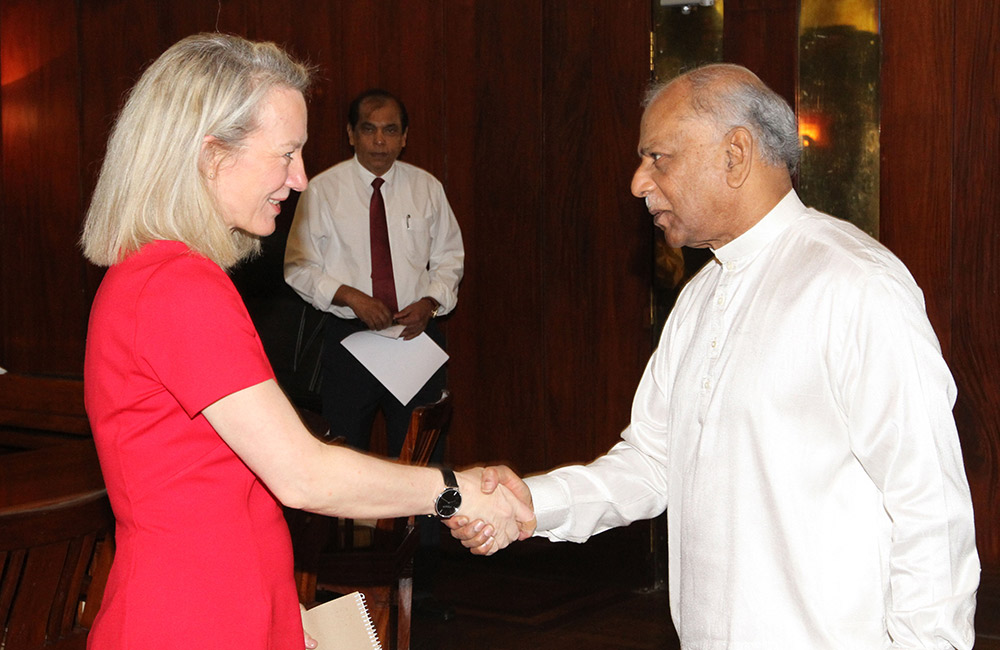
US keen to build to stronger relationship with Sri Lanka: Alice Wells
US Principal Assistant Secretary of State Ambassador Alice Wells who is on a two day visit in the island conveyed the keen desire of the United States to build a stronger relationship with Sri Lanka. While articulating the US strategic vision of the region, Ambassador Wells underscored the importance the US places on the bilateral engagement.
Foreign Relations Minister Dinesh Gunawardena conveyed Sri Lanka’s appreciation for the development partnership United States has extended to Sri Lanka as well as respect and appreciation for the democratic processes in the country.
He articulated these sentiments during discussions in Colombo with US Principal Assistant Secretary of State Ambassador Alice Wells at the Ministry of Foreign Relations on Tuesday (14) morning, the Ministry of Foreign Relations said.
The discussions focused initiatives to enhance cooperation in the areas of economic and business, education, defence, maritime affairs and military to military ties, and counter terrorism cooperation as well as initiatives under the US Indo-Pacific strategy.
Referring to the shared values of democracy, Ambassador Wells commended Sri Lanka for the democratic processes that had been sustained as witnessed by the successful conclusion of the Presidential election recently.
Minister Gunawardena while appreciating the US grant assistance emphasized the need for greater market access for Sri Lankan products and greater investment in Sri Lanka. He conveyed Sri Lanka’s commitment to strengthen the US – Sri Lanka relationship in all areas of cooperation including linking businesses of the two countries, intensifying engagement in the security and maritime spheres, enhancing tourism, and focused cooperation in technology and innovation etc.
It was agreed that the two sides work together to increase foreign direct investment from the US to Sri Lanka. The US delegation was also briefed on the developments in Sri Lanka and the renewed efforts in the areas of reconciliation and development. The Minister emphasized that with the stability established by the government, confidence is building within the country as well as outside in the economic, business and political spheres.
The US Principal Assistant Secretary Ambassador Wells was joined by Ms. Lisa Curtis Deputy Assistant to the President and Senior Director of the US State Department. Foreign Secretary Ravinatha Aryasinha and senior officials of the Ministry, were associated with the Minister during the talks.
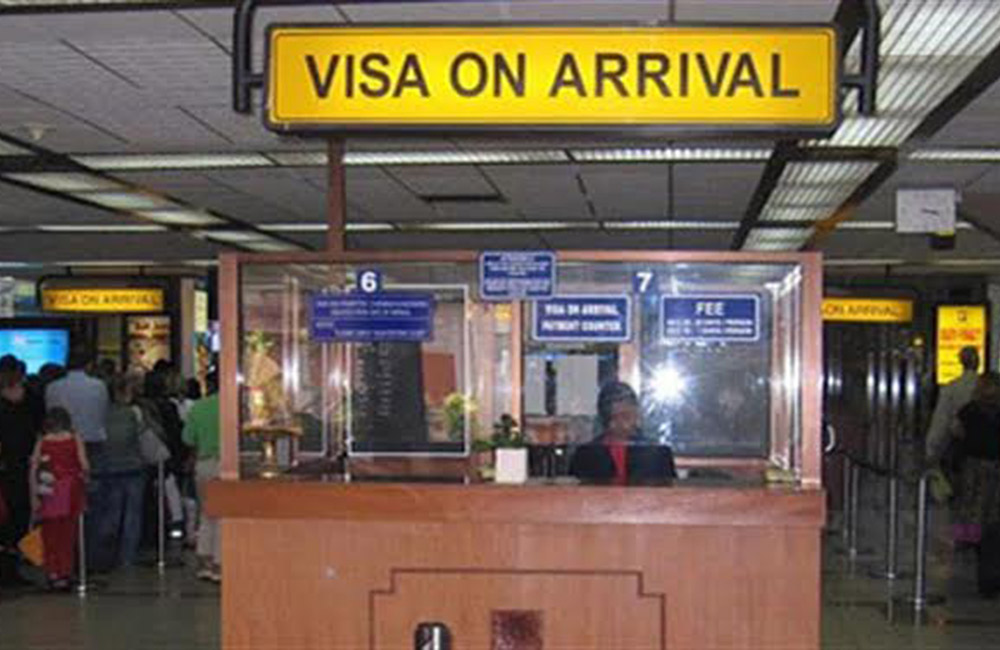
Sri Lanka extends visa-on-arrival for 48 countries
Sri Lanka on Thursday extended the free visa-on-arrival scheme till April 30 for the citizens of 48 countries, including India, Tourism Minister Prasanna Ranatunga said, as the country tries to revive the tourism sector which was hit by the Easter Sunday bombings.
On April, Sri Lanka suspended its plans to grant visa-on-arrival to citizens of 39 countries after the devastating bombings that killed 258 people.
On July, the island nation added more countries, including India and China after it re-launched the free visa on arrival scheme, which was implemented from August 1.
"We have decided to extend this facility due to requests from the stake holders. A Cabinet paper would be submitted for this purpose," Ranatunga said.
In the aftermath of the Easter Sunday bomb attacks, the $20 visa fee for South Asian travellers and $35 fee applicable to visitors from the rest of the world were waived off.
Tourism which contributes 5 per cent to the island's GDP was dealt a severe blow after the ISIS linked local terror group National Thawheed Jammath (NTJ) carried out suicide bombings which killed over 260 people at three luxury hotels and three churches on April 21.
Sri Lanka's tourism arrivals had received a boost by early 2019 with over 10 per cent increase in arrivals year on year. The Lonely Planet had by then named Sri Lanka as a top tourist destination in the world.
However, after the Easter Sunday bombings, the industry suffered mass scale cancellations of prior bookings. In May last year the arrivals suffered over a 70 per cent slump.
The tourism industry officials said the arrivals during 2019 were well below the 1.9 million arrivals target. The first 11 months data for 2019 had showed arrivals had been 1.67 million down by nearly 20 per cent.
The bombings, which targeted three Catholic churches and three posh Colombo hotels, killed over 250 people, including 44 foreigners, and injured over 500, including 37 foreigners. Tourism industry officials said there have been 70 per cent cancellations of prior bookings after the attacks.
The US, China, Britain, India and Australia were among the countries which issued travel warnings on Sri Lanka following the Easter Sunday blasts.
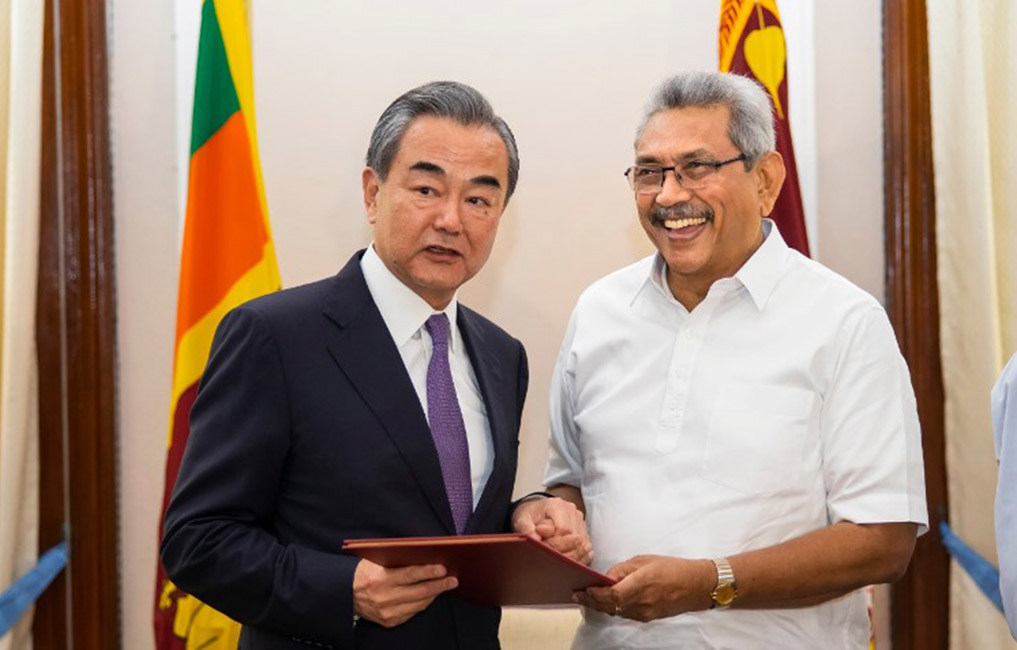
Economic independence will ensure political independence - President tells Chinese FM
President Gotabaya Rajapaksa said that Sri Lanka's economic independence will ensure its political independence during his meeting with the visiting Foreign Minister of the Peoples’ Republic of China, Wang Yi, who called on him at the Presidential Secretariat yesterday (14).
Minister Yi said that China, as did in the past, would be Sri Lanka’s longtime partner in prosperity and growth. He noted that China’s policy towards Sri Lanka had always been consistent and China would continue to be Sri Lanka’s reliable friend.
The Chinese Foreign Minister also conveyed the warmest greetings from Chinese President Xi Jing Ping and congratulated “China’s old friend” President Rajapaksa for getting elected to office.
Minister Yi said that after the in-depth discussion he had with President Rajapaksa, he was confident that already existing strong bilateral relations could be further strengthened.
Referring to President Rajapaksa’s commitment to make Sri Lanka economically independent, the Chinese Foreign Minister said that during the President’s visit next month, all arrangements would be made to meet with necessary parties that can help Sri Lanka in the areas of technology, tourism, infrastructure and other related fields. The visit, he promised will be most productive.
“Sri Lanka may have less landmass, but will soon be strong economically. China will be with Sri Lanka in its striving to reach this goal”, Minister Yi assured.
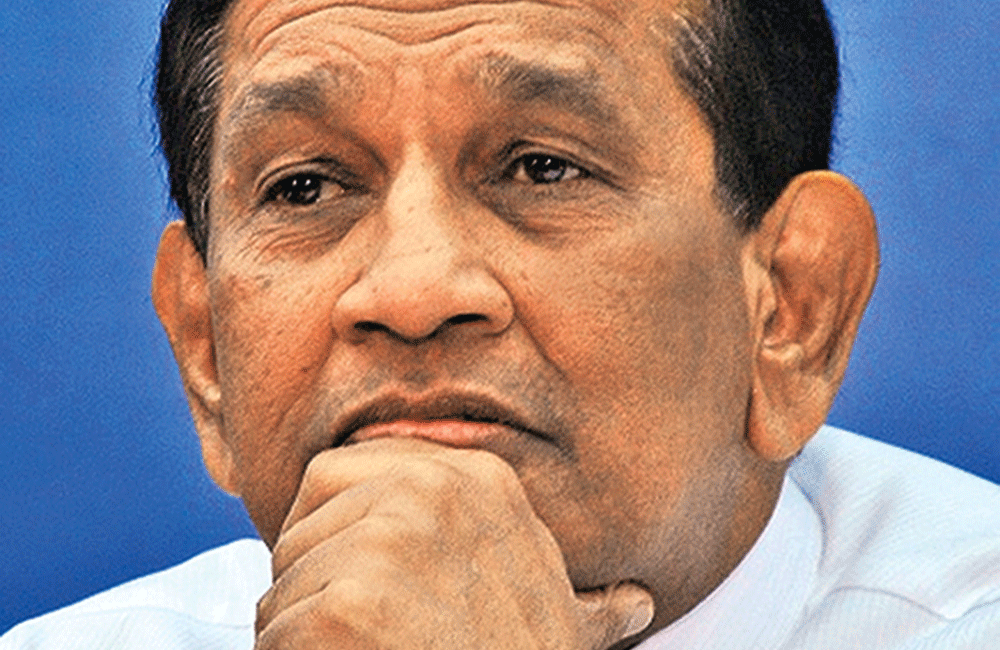
Rajitha remanded
Former Minister Rajitha Senaratne has been remanded till the 30th of December.
The former Minister was arrested earlier today while receiving treatment at a private hospital in Narahenpita.
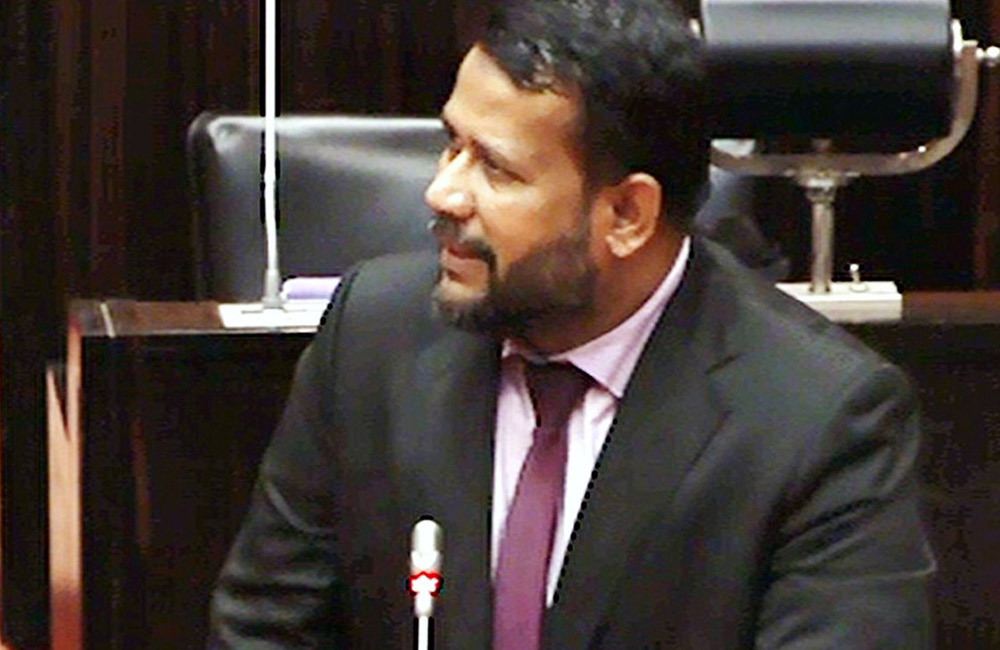
ACMC warns of 'dangerous outcomes' for ethnic minorities
"These parties grow in to being since major political parties do not have 'political space' for their weak voices," he added referring the country’s major Sinhala political parties.
"What is the expectation of the President when he tries to close our voices in this way?," he inquired. “Is it not clear of the possible dangerous outcomes for Sri Lanka’s ethnic harmony and reconciliation from such dangerous and undemocratic acts?"
Bathiudeen however said the lack of Muslim ministers in Sri Lanka’s latest cabinet is fine as the President’s policy statement delivered on January 3 in parliament affirmed that "the benefits of development should reach every group of people."
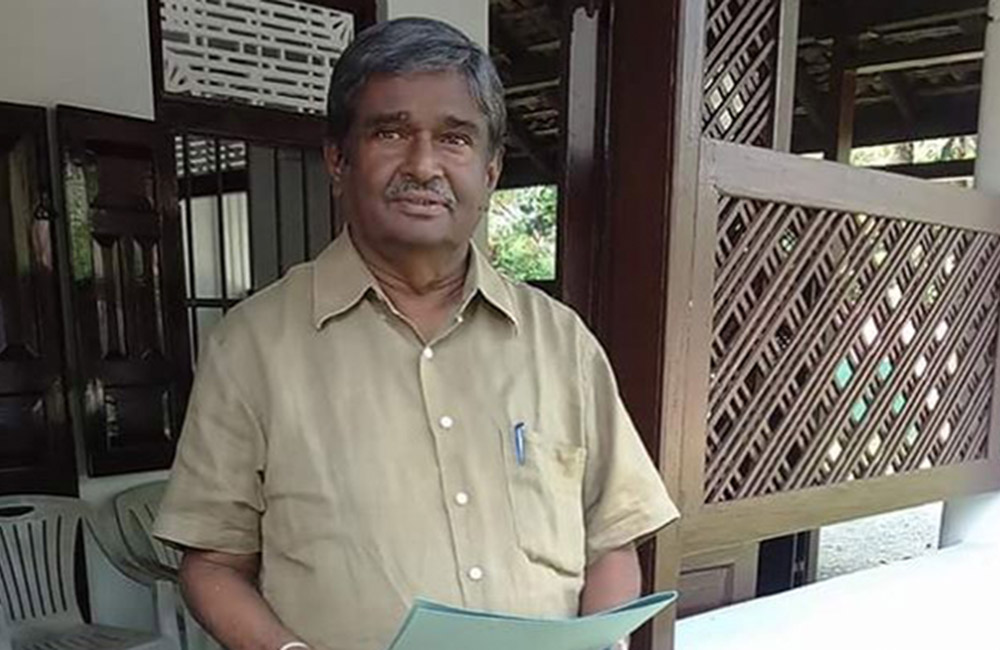
Former UNP MP Galappaththi passes away
Former UNP Matara district MP Justin Galappaththi has passed away at the age of 68.
He passed away while receiving treatment at a private hospital in Colombo.
MP Justin Galappaththi was an active politician and represented the Southern Provincial council since 1988.
He is the father to the UNP Dewinuwara organiser Chathura Galappaththi.
The remains of the late politician will be taken to his residence in Pamburana, Matara tonight.
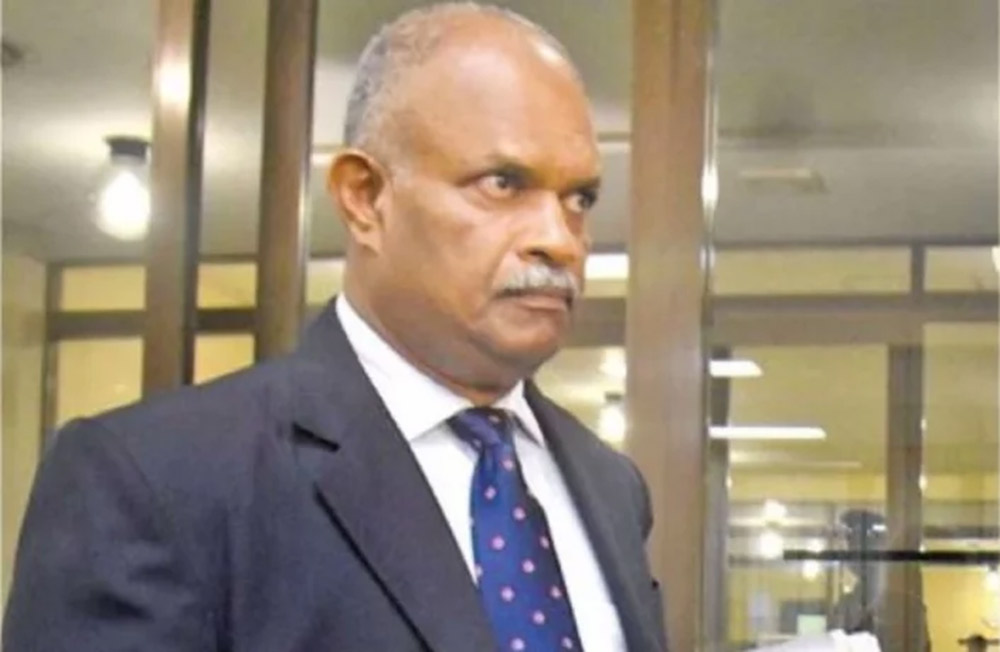
Shani Abeysekara’s service suspended!
Former director of Criminal Investigation Department senior Police Superintendent Shani Abeysekara's services have been suspended effective from today (07) by the National Police Commission.
The suspension of service was due to the telephone conversation carried out with MP Ranjan Ramanayake that has been supposedly exposed.
Acting IGP C.D. Wickramaratne has instructed to submit a report pertaining to the allegations leveled against Abeysekara within two weeks period of time.
Abeysekara who served as the director of the CID was transferred as a personal assistant to Galle DIG in the aftermath of the presidential election.
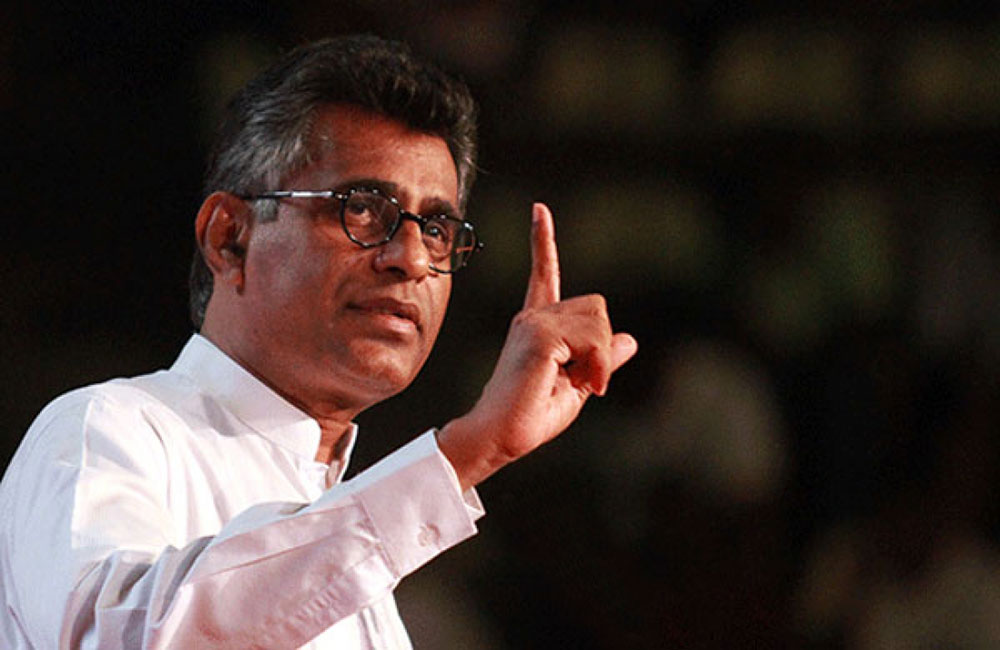
Patali released on bail
Former Minister Patali Champika Ranwaka has been released on bail. Ranawaka was released on bail after he was produced before Colombo Additional Magistrate Kanchana Niranjana de Silva.
He was released on a cash bail of Rs 25,000/- & two sureties of Rs 500,000 /- each.
The court further ordered him to appear at the Criminal Crimes Division every last Sunday of the month. Former minister Patali Champika Ranawaka was also advised not to interfere with the prosecution’s witnesses.
Ranawaka was arrested at his residence in Battaramulla on the 18th of this month by officers of the Colombo Crimes Division. He was arrested in connection to an investigation into a motor accident in Rajagiriya on the night of February 28th 2016.
Meanwhile, the man who claimed to be the driver to MP Patali Champika at the time of the accident was remanded till the 06th of January, after surrendering to court.
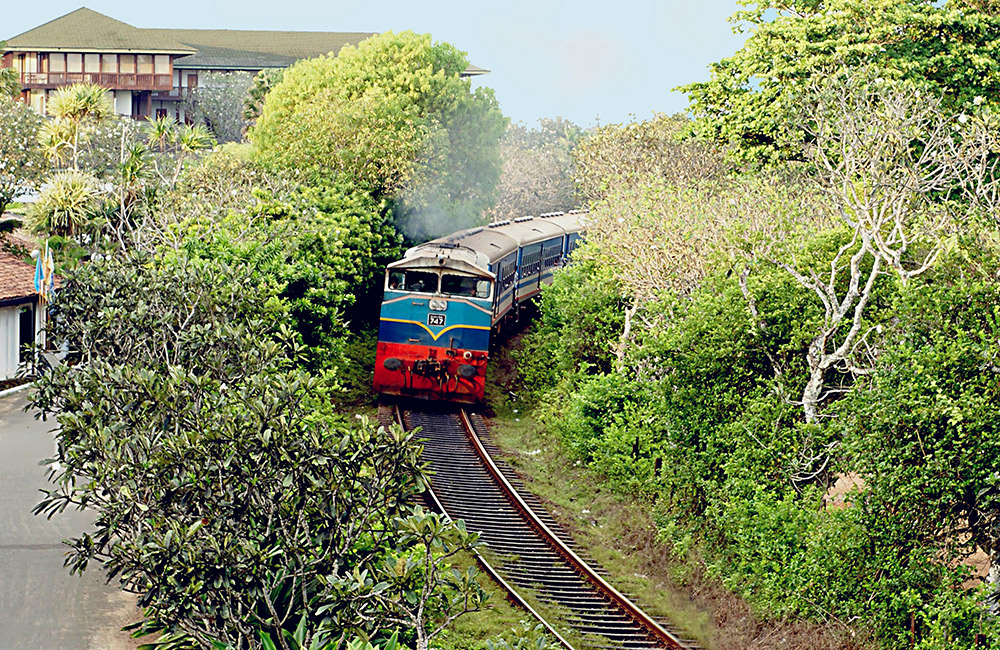
Govt. to initiate 'Green' railway station project
Sri Lanka's Transport Ministry, on Wednesday launched a mega project across the island country to convert railway stations into green projects as part of a beautification programme.
Transport Minister Mahinda Amaraweera, quoted in local media reports said he had instructed all railway department officials to launch the project, starting from the Dematagoda Railway station, in capital Colombo.
The minister said all railway stations would be converted into green railway stations under the concept of "Green Places and Cities for Health and Prosperity."
Presently the Kandy Railway Station, in the central highlands has been identified as the cleanest railway station.
"The government will initiate the programme giving priority to nature and promote sustainable development in Sri Lanka through Green Economic initiatives," said the minister.
All the railway stations in the country will be developed into beautiful and green stations to attract local and foreign commuters, he added.
Under the beautification programme, the most attractive green railway station will be selected between March and July next year.
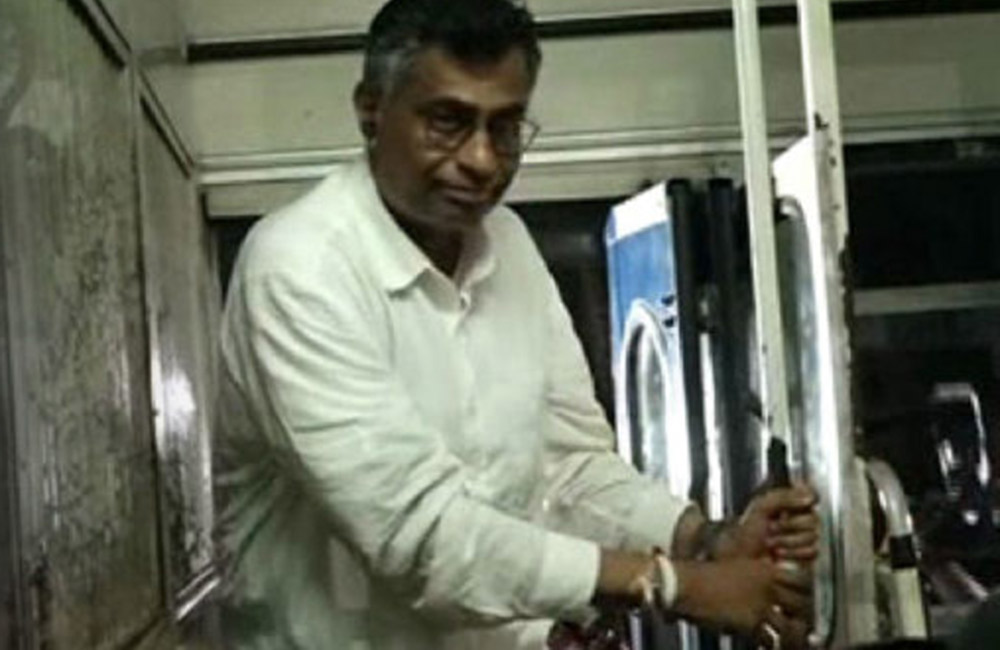
Patali remanded until tomorrow
Arrested MP Patali Champika Ranawaka has been remanded until tomorrow.
The Colombo Crime Division took him into custody at his Jayanthipura, Battaramulla home and produced him before Colombo Fort magistrate’s court a short while ago in connection with a road accident that occurred three years ago.
Reports say a heated situation prevails near the CCD headquarters following Ranawaka’s arrest.
Following is video footage of his being taken to the CCD:
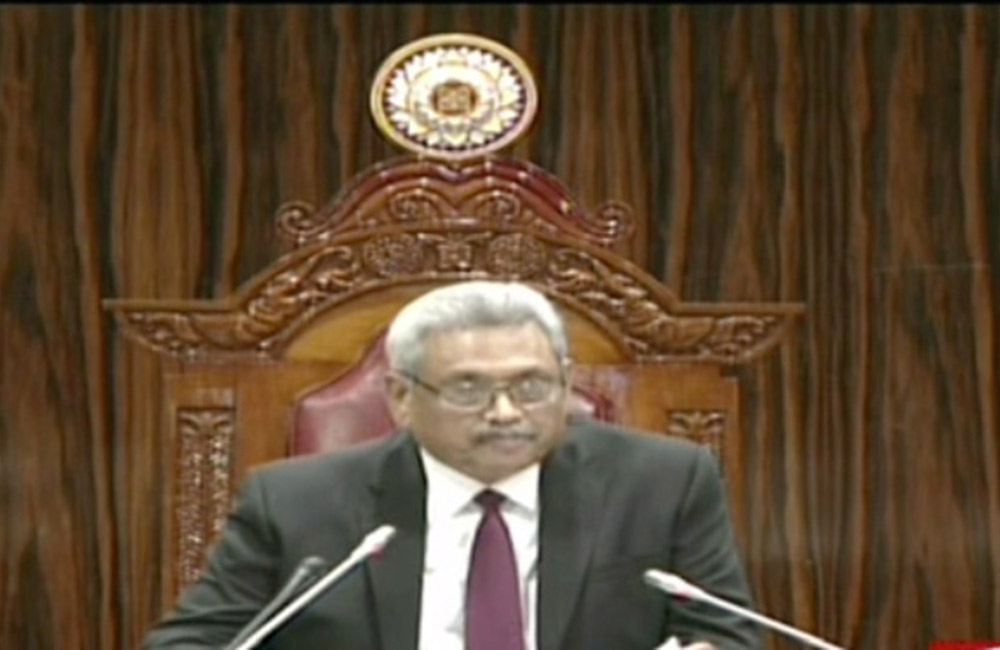
I don't wear the maroon shawl but i stand for the same philosophy symbolized by it: President
President Gotabaya Rajapaksa stated that even though he would not wear the signature Maroon shawl, he would stand for the same profound philosophy of constant dedication to the poor that is symbolized by the maroon shawl.
"From the first day the honourable D. M. Rajapaksa, known as the Lion of Ruhuna, appeared in the State Council, he wore a maroon coloured shawl. What he symbolized through this maroon shawl were the millet farmers of Giruvapaththuwa. Following D. M. Rajapaksa, my father D. A. Rajapaksa and each member of the Rajapaksa family who was elected to Parliament wore the maroon shawl. Even though I do not wear this shawl, I stand for the same profound philosophy of constant dedication to the poor that is symbolized by the maroon shawl. It is this same philosophy that is embodied in the Policy Statement I presented during my Presidential election campaign," President Rajapaksa said.
The President said this during the policy statement made in parliament today (03) at the inauguration of the Fourth Session of the 8th parliament of Sri Lanka.
President Rajapaksa noted that the people who elected him to office desired a profound change in the political culture of the country and have rejected political agendas found on race. He extended an invitation to all politicians to join together to develop the country devoid of petty politics that have sown division in the country.
"(the people) have rejected political agendas founded on race. The majority of the people proved that it is no longer possible for anyone to manipulate and control the politics of this country by playing the role of king maker. I invite the politicians concerned to understand this reality. I call upon all to join together in the national undertaking to develop this country, and to reject the politics based on petty agendas that have sown division in our society in the past," he said.
President Rajapaksa reiterated that he will take all necessary steps to make our motherland a safe country free of terrorism, extremism, underworld activities, theft and robbery, extortionists, the drug menace, disruptions of public order, and the abuse of women and children.
"Our primary purpose is to create a productive citizen, a happy family, a disciplined society and a prosperous nation," the President said.
Full text of the policy statement made by His Excellency Gotabaya Rajapaksa, President of the Democratic Socialist Republic of Sri Lanka at the inauguration of the Fourth Session of the 8th Parliament of Sri Lanka is found below.
"Honourable Speaker, Honourable Prime Minister,
Honourable Leader of the Opposition,
Honourable Ministers, Honourable State Ministers, Honourable Members of Parliament,
I have this opportunity to address you as the Head of State of the Democratic Socialist Republic of Sri Lanka consequent to the historic victory granted to me by the people of this country on the 16th of November.
I express my gratitude to all citizens, institutions and all political parties who were committed to a peaceful, free and fair election.
Irrespective of the political party you, the Honourable members in this august Assembly belong to, together all of us have as our prime responsibility to work for the betterment of the people of this country.
I have served this nation as an Army Officer for twenty years, and as Secretary of Defence for nearly another ten years.
Even though I was not actively engaged in politics, I have experienced what service to the people is, from an early age.
My father’s elder brother, D. M. Rajapaksa, began his political journey in the State Council in 1936, representing the Hambantota electorate. After his demise in 1945, the people of Hambantota elected my father, D. A. Rajapaksa, to the State Council. Later, he was elected through the popular vote as a Member of the country’s first Parliament.
From that time until now, many members of the Rajapaksa family, hailing from the rural village of Medamulana in Giruvapaththuwa, Ruhuna, have served as elected public representatives. There have not only been Members of Parliament, Deputy Ministers, Cabinet Ministers, a Deputy Speaker of Parliament, a Speaker of Parliament, a Leader of the Opposition and a Prime Minister, but also two Presidents elected to office by the people, who reposed their trust in us.
From the first day the honourable D. M. Rajapaksa, known as the Lion of Ruhuna, appeared in the State Council, he wore a maroon coloured shawl.
What he symbolized through this maroon shawl were the millet farmers of Giruvapaththuwa.
Following D. M. Rajapaksa, my father D. A. Rajapaksa and each member of the Rajapaksa family who was elected to Parliament wore the maroon shawl.
Even though I do not wear this shawl, I stand for the same profound philosophy of constant dedication to the poor that is symbolized by the maroon shawl.
It is this same philosophy that is embodied in the Policy Statement I presented during my Presidential election campaign.
Honourable Speaker, I now take this opportunity to table the “Visions of Prosperity and Splendour” Policy Statement.
The people of this country gave me a clear mandate at the Presidential election held on 16th November 2019. That mandate was granted because of the trust the people had in me. I, together with my Government, stand committed to honour the trust of the people and implement the programme of developing a prosperous nation that we promised to them.
The people who elected me to office desired a profound change in the political culture of this country. They rejected political agendas founded on race. The majority of the people proved that it is no longer possible for anyone to manipulate and control the politics of this country by playing the role of king maker.
I invite the politicians concerned to understand this reality. I call upon all to join together in the national undertaking to develop this country, and to reject the politics based on petty agendas that have sown division in our society in the past.
We must always respect the aspirations of the majority of the people. It is only then that the sovereignty of the people will be safeguarded.
In accordance with our Constitution, I pledge that during my term of office, I will always defend the unitary status of our country, and protect and nurture the Buddha Sasana whilst safeguarding the right of all citizens to practice a religion of their choice.
I remember my father being at this Parliament, during my childhood. I often used to watch Parliamentary proceedings from the public gallery. The Parliament we had then was exemplary. The discourse that took place in it was of great importance. The debates were replete with logic and rich arguments. School children and adults were eager to come to Parliament to listen to those debates. Members of Parliament always behaved in a way that upheld the dignity of the Parliament and the office they held. The people then had great respect for the Parliament. They respected people’s representatives. Unfortunately, latterly, that respect gradually waned.
This Parliament should once again become an exemplary institution where the real issues of the people are discussed, where matters concerned with national policy are subjected to debate, and where the responsibilities of the legislature are duly fulfilled. The responsibility of ensuring that the Parliament once again becomes an institution winning the respect of the people lies with the Members who are in this House.
There is a social, economic and political crisis in the country today. Even after 70 years of Independence, we cannot be satisfied with the country’s development. We all have a responsibility to change this situation. We must be prepared to make the sacrifices required for this.
The primary responsibility of a people’s representative is service to the people. We should all remember that the offices we hold are not privileges, but responsibilities.
To develop the country, the right vision and plans are needed. The Policy statement, “Vistas of Prosperity and Splendour”, placed before the people at the Presidential Election by me contains a national programme that was crafted during a period of nearly four years by incorporating my vision with the ideas and recommendations of national organisations such as Viyathmaga, the findings of the “Conversation with the Village” programme conducted by the Sri Lanka Podujana Peramuna, the discussions held with other political parties, and the ideas contributed by the general public.
In accordance with that programme, we have already taken several steps including the easing of taxes that were unduly burdening the public, introducing a high degree of transparency and efficiency to the government administration, and curtailing unnecessary government expenditure.
In our policy, National Security occupies the foremost place.
We have already taken steps to strengthen the national security apparatus. Talented officers have been given appropriate responsibilities again. We have taken steps to ensure proper coordination between the Armed Forces and the Police, who are collectively responsible for maintaining national security. The network of national intelligence agencies has been reorganized and strengthened.
We will take all necessary steps to make our motherland a safe country free of terrorism, extremism, underworld activities, theft and robbery, extortionists, the drug menace, disruptions of public order, and the abuse of women and children.
Our primary purpose is to create a productive citizen, a happy family, a disciplined society and a prosperous nation.
The Government must take the initiative to make every healthy citizen of employable age a useful and productive citizen. What we need is for all of them to contribute to the nation’s economy.
We must ensure that the benefits of development reach every group of people. We must employ modern methodologies and indicators to gauge whether the needs of the people are truly being met, and whether they are happy. It is no longer necessary to wait for elections to find out how people feel about the work programme of the Government.
We need everyone’s support for our efforts to reduce the cost of living of the people. The corporate sector must ensure that some percentage of the benefits of the tax concessions recently provided to them are passed onto the public as well. Accordingly, we expect a reduction in the price of all goods and services on which taxes have been reduced.
Eliminating poverty is a priority of our Government. We must understand the causes of poverty and find solutions to eliminate such causes. We will be able to alleviate poverty by finding practical approaches to issues such as the lack of proper education or skills, the lack of land for cultivation, or the lack of capital for self-employment.
We have made plans to find employment opportunities for 100,000 young men and women from low income families within the next month. My government is prepared to present practical solutions to resolve unemployment, with the public sector and the private sector working together.
One of our main themes during the last election was the development of a virtuous, law abiding and disciplined society. The public has given us a mandate for this purpose.
Ours is a country with an ancient history, and a society nurtured by Buddhist teachings and the teachings of other world faiths. We must always safeguard our culture and our values.
Our target is to make Sri Lanka a developed country. It must be a sovereign, independent nation. Also, it must be a safe, and a peaceful country. Sri Lanka will be a prosperous nation only when all of these are achieved.
We have introduced a people-centric economic policy through the “Vistas of Prosperity and Splendour” manifesto.
Its main aims are to ensure economic stability for all citizens, provide equal opportunities to all who seek to improve themselves, to establish a clean and efficient state sector that is committed to public service, and to protect and empower local entrepreneurs.
In order to successfully establish a people-centric economy it is important that every official from the highest to the lowest level of government becomes aware of our vision and aims. That will enable them to perform their duties more productively.
We must also implement a special programme to combat corruption and fraud. Legal action must be taken promptly against all who engage in corrupt practices, irrespective of their status.
Today, most countries have employed technology as a means of enhancing the efficiency of the state sector. Through this, it will also be possible to provide equal opportunities for all. As such, we will pay special attention to increasing the use of technology in government institutions.
We must plan for the future, based on the geographic location, natural resources and human resources of our country.
Sri Lanka has been an international trading hub for merchants from Greece, Rome, Arabia, China and various other nations for thousands of years. One of the main reasons for Sri Lanka’s renowned standing was our country’s unique location in the ocean connecting the east and west. We can benefit from this advantage in the same way today.
During the period from 2005 to 2014, the government of President Mahinda Rajapaksa planned to develop Sri Lanka into the commercial hub of South Asia.
The Mattala Airport was built adjacent to the Hambantota Port with the aim of establishing an industrial city in the south.
The decision to develop the Colombo Port City was taken with the aim of making Sri Lanka a hub for finance and commerce in Asia. We must carry forward these projects that were designed according to achieve long term objectives.
If we work according to a proper plan, we will be able to encourage international businesses to locate themselves in Sri Lanka and supply goods and services to regional neigbouring countries. To encourage such investors, we must be prepared to swiftly provide all the facilities they require within Sri Lanka.
For economic development to occur, it is important that we accelerate improvements to the road network, including the expressways, so that travel from any one part of the country to another in a few hours becomes possible. The development of the train service is an integral part of this programme. We can also help alleviate the grave problem of heavy road congestion through an efficient and comfortable train service.
Urbanization brings both good and bad results to a country. We need a restructuring programme to ensure that the benefits of development reach every region of the country. This will help us reduce congestion, pollution and the cost of living. People dispersed throughout Sri Lanka should have access to facilities for education and healthcare, and opportunities for employment, within their own area. The development of the roads and rail network together with the provision of high-speed internet and telecommunication facilities throughout the country is essential for this.
The cost of electricity is an important factor in economic development. It particularly affects the attracting of investors to the industry sector. We need short-term and long-term solutions to generate power at a reasonable price. In looking at long term solutions, our principle is to pay special attention to the use of eco-friendly renewable energy sources such as solar, wind and hydro-power.
Although our country is rich in gem and mineral resources, relevant value-added industries have not yet developed to international standards. Each year, the country is deprived of significant foreign exchange earnings through the export of these natural resources without value addition. We should establish a world class marketplace in which gems from not only Sri Lanka but even from African nations can be sold after value addition.
While we should provide new technological facilities for conducting oceanic and geological surveys, we must provide special incentives to encourage investments in industries that will provide value addition to Sri Lanka’s mineral resources.
We will not allow various laws, permits and restrictions to impose unnecessary and unfair limitations on some of Sri Lanka’s traditional livelihoods, including the gem industry, tile industry, brick industry, carpentry and handicrafts.
When planning for the future, more attention than at present must be given to the agriculture, plantation and fisheries sectors. As a country that possesses a large oceanic economic zone in temperate waters, we can develop these industries much further.
We need to increase earnings from agricultural produce such as spices, fruits, vegetables, grains, meat and fish, for which there is export potential.
One third of the country’s population is engaged in agriculture, plantation industries and the fisheries sector. We must raise their standard of living.
There is a need for new technology-based approaches that can develop these industries beyond traditional farming methods.
Encouraging the production of food free of pesticides and chemicals, by increasing the use of organic fertilizer for agriculture is part of our policy. We must prepare plans to encourage Sri Lanka’s entire agriculture sector to shift to using only organic fertilizer within the next decade. Increasing domestic production of organic fertilizer should be included in these plans.
The problems that had been caused to growers of export-oriented crops through the allowing of unlimited re-exports were addressed by the new Government soon after its assumption of office. Instructions have already been issued to completely stop the re-export of agricultural products.
More attention has to be paid to the ocean economy. We will introduce a systematic programme to improve the fisheries sector through the introduction of new technologies and equipment. Existing harbours will be improved and new harbours developed to cater to the requirements of multi day vessels that engage in deep water fishing.
Introducing new technologies to further develop the inland fisheries sector is also part of our plan. Protecting the natural environment for our future generations is one of our fundamental responsibilities. We will pay special attention to environmental protection in the formulation and implementation of government policies.
We hope to make Sri Lanka one of the world’s leading nations in achieving the United Nations’ Sustainable Development Goals.
Our most valuable resource as a nation is our future generation. As such, we have identified the development of our human capital as one of the primary responsibilities of the government.
We have to pay special attention to ensuring that our future generation will become productive citizens by nurturing them with the required knowledge, skills and abilities. The opportunities young people have to pursue higher education and technical education should be broadened. The infrastructure facilities needed for this must be developed within a short time frame. The number of students entering tertiary education can be increased through more effective utilization of the capacities of state universities and other higher educational institutions.
Some of the courses taught in universities today are not in consonance with market requirements. In the near future, we intend to introduce short-term courses to equip our university students to meet the needs of the modern job market, which they can opt to attend whilst pursuing their current courses of study. Universities and other higher education institutions should be given more freedom in the enrollment of students and in the restructuring of their syllabi to meet the needs of the marketplace.
Institutions in the country that currently teach diploma level programmes must be gradually enhanced to the level of degree awarding institutions. As a preliminary step, we look forward to upgrading teacher training schools and nursing schools to degree awarding level. The shortage of trained graduate teachers continues to be a problem in the education sector. Further, by upgrading the existing 3-year diploma programme in Nursing into a 4-year degree, and by improving the English knowledge of nurses, we will create opportunities for them to even seek work abroad by providing services that meet international quality standards.
Colleges which provide technical and industrial training need to be strengthened to cater to more students who have studied up to the Ordinary Level examinations but not progressed beyond the Advanced Level examinations. The funding and facilities provided to these institutions need to be increased. This will not only enable us to create a workforce that has received vocational training in line with global standards, but also enable such trained personnel to seek high wage employment in the fast-evolving marketplace both here and abroad.
Many young people are currently deprived of employment opportunities due to their lack of proficiency in English. We will introduce a special programme to improve the facilities provided for English education in all schools, and to recruit the required teaching staff.
We intend to entrust our foreign Missions with special responsibilities to seek new employment opportunities for our youth. We can enhance Sri Lanka’s image in the global job market and earn more foreign income by sending trained and qualified workers in all fields to work abroad, instead of untrained workers.
The education sector can be a significant foreign exchange earner. A large number of Sri Lankan students presently study at higher educational institutes in Asia. Instead of sending our students abroad for higher education at a high cost, we should introduce a programme to attract foreign students to Sri Lanka. We must prepare short term and long term programmes to improve the global ranking of our universities.
Sri Lanka is still referred to as a developing country even after 70 years of our achieving independence. We must identify the opportunities that would allow us to move away from this situation and to become a developed country.
With a population of over 5 billion, Asia is undergoing an economic boom and the center of gravity of the global economy is moving towards it.
The fastest growing middle class with high purchasing power is in this region. That is why we must encourage our local entrepreneurs to seek new markets in Asia.
The 21st Century is known as the Knowledge-centric Century.
New technologies such as Artificial Intelligence, biotechnology, robotics, 3D printing, and the Internet of Things, amongst others, are continually changing the world.
Most developing nations have grasped this reality. They are spending substantially to attract technology centric investments.
We must pay attention to this in the formulation of our investment policies. We must understand what type of investments we need to spur future economic development. We must provide special incentives and concessions to encourage investors who are capable of introducing new technologies to the country.
It is also very important to direct our youth to learn these new technologies and undertake research relevant to them. We must assist our education system to speedily prepare to facilitate this change without delay. We must also take steps to promote English education as well as Information Technology usage amongst our youth.
It is important to understand that we have market opportunities beyond technology heavy sectors. One sector we can very swiftly develop is the tourism industry. This sector, which earned 4.4 billion US Dollars in 2018, has space to grow to one that can earn revenue in excess of 10 billion US dollars within the next few years. We will introduce a systematic programme to achieve this.
For us to reap the full benefits of democracy, the government administration must function in an exemplary way.
As we noted in our Policy Statement, we will appoint persons with subject knowledge and suitable qualifications to discharge their responsibilities to govern state institutions efficiently and profitably. After the formation of the new Government, we established a committee to evaluate and recommend suitable persons for the governance of state institutions.
We saw the rapid development of the Sri Lankan economy during the 2005 to 2014 period. Infrastructure such as the road network, housing, electricity, water, and communications and spheres such as garbage management and urban beautification all saw rapid development. We can recreate this momentum by establishing a skillful administration.
Honourable Speaker,
The success of a democracy rests upon the Constitution. The 1978 Constitution, which has since been amended on 19 occasions, has given rise to many problems at the present time because of its inherent ambiguities and confusions.
In order to safeguard the security, sovereignty, stability and integrity of our country, it is essential that changes be made to the existing constitution.
Whilst preserving the positive characteristics of the proportional representation system, electoral reforms are needed to ensure the stability of the Parliament and to ensure the direct representation of the people.
Even though elections can be won through numbers, an unstable Parliament that cannot take clear decisions and remains constantly under the influence of extremism is not one that suits the country.
We can solve this problem through constitutional reforms that will establish a strong executive, legislature and an independent judiciary that can ensure the sovereignty of the people.
Our country’s unique position has resulted in considerable attention being given towards Sri Lanka in global geopolitics in recent times.
We follow a neutral foreign policy.
We must strive to maintain friendly relations with every country.
However, we can never give up our independence.
We must establish an honourable governance that will allow this country to maintain its sovereignty, security, national pride, and deal with all nations on equal terms, without demonstrating weakness in our diplomatic or trading relationships.
We will never allow other countries to take over our economically significant geographic regions or physical resources.
It is my aspiration to ensure that the Sri Lankan people will become a proud people with a global standing.
We can overcome all the obstacles in our path to reaching that goal if we unite as a nation.
I love my country. I am proud of my country. I have a vision for my country.
I invite all of you to join and work with me to achieve the responsibility that has been assigned through history to our present generation.
Thank you.
May the blessings of the Noble Triple Gem be with you".
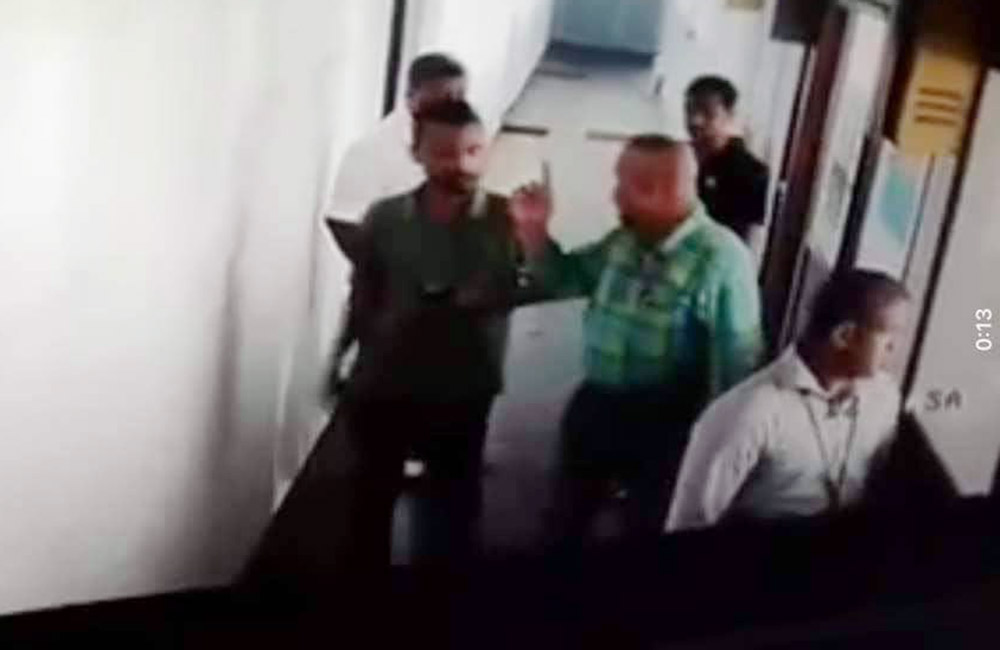
Former Lake House New Media Editor attacked!
Former Editor of the Digital and New Media Unit of the Associated Newspapers of Ceylon Ltd. (Lake House) and founder of popular social media page ‘Madyawediya’ Madhuka Thaksala Fernando has been attacked and issued death threats by the President of the Sri Lanka Podujana Peramuna (SLPP) trade union of Lake House and a number of other SLPP thugs.
The incident had taken place yesterday evening (10) at Lake House. The attack had been carried out by a group of 15 individuals including the President of the SLPP Trade Union Chandana Bandara and ANCL employees Hemantha Dep, Gayan Bandara, Chameera Eldeniya, Nuwan Kodikara together with Sanjeewa Padmakumara, Anura Kumara from the ANCL's advertising division.
A UK Graduate in New Media:
Madhuka, a UK graduate in New Media had left his job in the UK to work in Sri Lanka on an invitation extended by the former government. He had worked at the Rupavahini Corporation (SLRC) and a number of other media institutions before being appointed as the Editor of Digital and New Media at ANCL.
Following the defeat of the 'Yahapalana' (Good Governance) government on November 16, Madhuka had tendered his resignation on November 18 to the Lake House authorities.
However, according to ANC policies, Madhuka is required to work till December 31 when his resignation will become official. Therefore, Madhuka had come to Lake House as usual.
While Madhuka was at the ‘Resa’ newspaper editorial, a group of thugs had barged into the office had dragged him out leading to a rest room area which had no functioning CCTV cameras and beaten him. While attacking him, the thugs had apparently said “There is no point telling you, this is the way you must be spoken to” and threatened to kill him if he visits Lake House again.
A bypass heart patient!
CCTV footage captured how Madhuka was being dragged to the restroom area. According to sources, Madhuka had undergone an open heart bypass surgery and is a heart patient.
The attack had not only scared him but has caused his health condition to worsen. He has complained to the Fort Police station about the attack and submitted a written complaint to Lake House General Manager Abhaya Amaradasa. However, none of the suspects have been arrested yet.
Attempts to scare media personnel!
After the recent change of government, a systematic oppression of the media has been on ongoing.
Following the Presidential election on November 26, Police and a group of men in civilian attire had visited the office of newshub.lk with an expired search warrant and gone on to check the computers of the office.
Following this, based on a complaint by a Sinhala organisation to the IGP, an investigation was commenced by the CID’s cyber crimes division which summoned the Editor of Voicetube.lk, Thushara Witharana to the CID on November 28 to obtain a statement from her. She was questioned for over 6 hours.
While she was not informed of the exact reason for being summoned, the same unit on November 26 had called on journalist and attorney-at-law Sanjaya Dhanushka, who presented the alternative news cast for The Leader TV for questioning. He was grilled for over 8 hours on the day.
Self Censorship by Media!
In a political commentary in ‘Anidda’ written by Prof. Jayadeva Uyangoda, he states that;
“It is not a pleasure for a political commentator to impose self censorship. But will I be imprisoned if I write according to my conscience? Will I be abducted and be made to disappear? Will I have to provide a statement to the Police? Will unknown men on motorcycles circle my home? Has the time for political commentary without fear, restraint and doubt ended? These uncertainties are not my own but I believe are haunting other journalists in this country as well.
However, what is most unfortunate is that while media personnel and organisations are being attacked the opposition has continued to stay silent."
Page 413 of 662